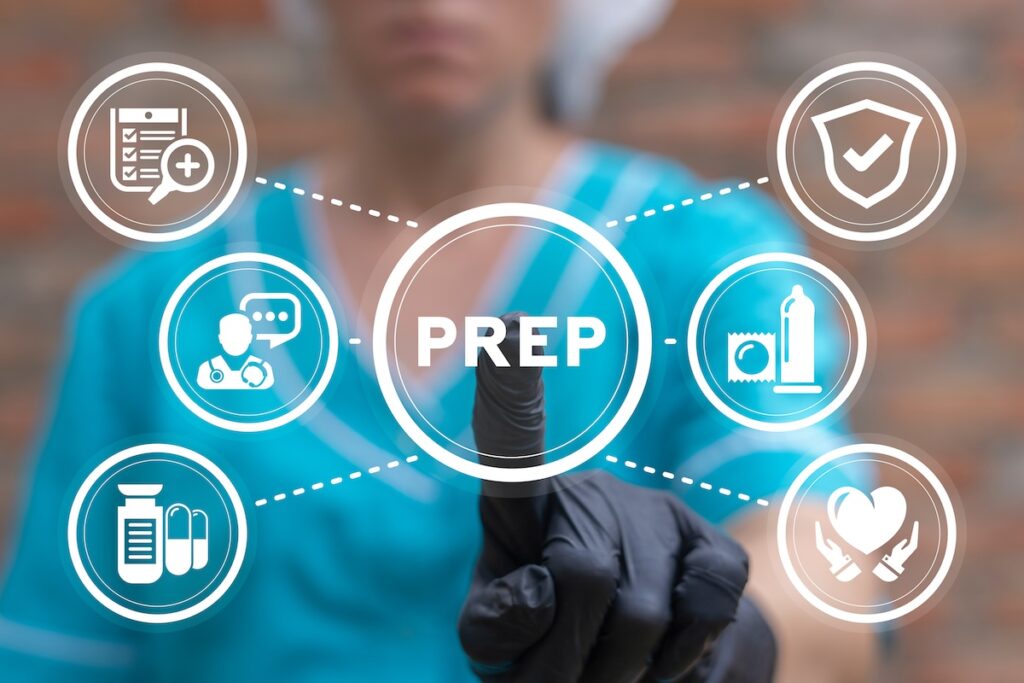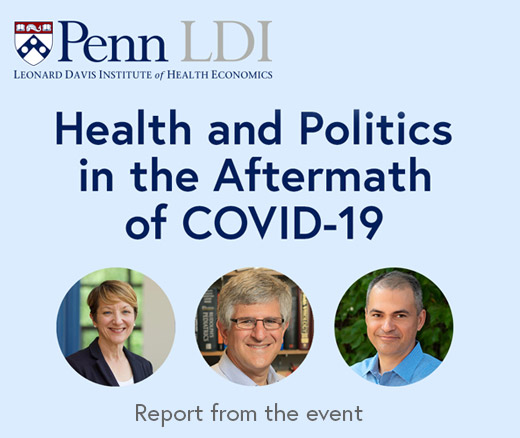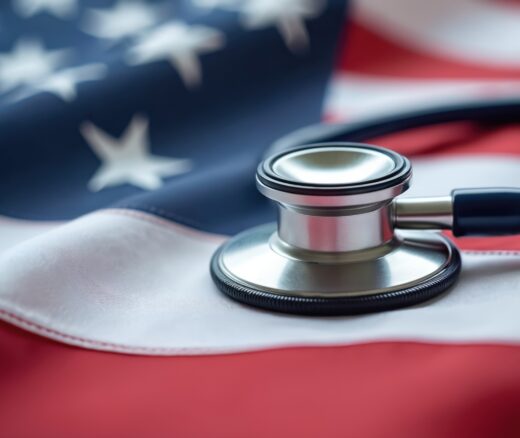
Contradictions That Confuse Federal Food Policies
Announcing Bold New Goals While Crippling the Infrastructure Needed to Achieve Them
Health Equity | Population Health
Blog Post

Imagine a community health clinic that’s a one-stop shop for HIV prevention, like a convenience store with everything you need.
That’s the model for four Philadelphia community clinics that lower barriers to preventive HIV care by reducing stigma, integrating medical and social services, and meeting multiple needs in one visit.
Clinic providers, staff, and HIV prevention navigators who assist clients talked about what they’ve learned from offering the new service in a study by LDI Senior Fellows Stephen Bonett, José Bauermeister, Sarah M. Wood, and coauthors. The team spoke with staff and providers during focus groups and interviews at three of the clinics to understand how they increase the use of PrEP–pre-exposure prophylaxis–medication for people who are HIV negative but at risk for infection through sex or injected drug use.
The research is a collaboration with the Philadelphia Department of Public Health and its Ending the HIV Epidemic initiative, the Penn Center for AIDS Research, and LDI, which gave a pilot grant to Bonett. He answered questions about his HIV prevention research.
Bonett: Four sites received funding in 2021 to implement low-threshold services, including HIV testing, onsite PrEP provision, and navigators for individualized assistance. Three sites were existing community-based clinics that added or increased these services and another was a new clinic. Each serves a specific region or group, such as Black, or Latinx and Spanish-speaking clients, or the LGBTQ community.
A strength of the clinics is knowing how to best serve their community. One focuses on sexual health so they stepped up their PrEP services. Another specializes in substance use disorder treatment so they integrated more PrEP services. Another clinic added low-threshold sexual health care to primary care.
Bonett: We held focus groups and conducted interviews in late 2021 and early 2022. A useful method was process mapping: Study participants drew maps of what patients did at the clinic, whom they interacted with, and how they got a PrEP prescription and follow-up care.
The maps showed where patients still met barriers. After drawing one map, we all said, “I think the client fills out four intake forms.” The staff eliminated some to streamline processes for the clinic and patients.
Bonett: A main strategy for effectiveness is integrating and co-locating PrEP with other medical and social services. Same-day appointments for multiple services make it easy for people to get PrEP, other health care, and assistance with insurance, housing, and transportation.
Universal PrEP counseling that integrates a PrEP conversation into the workflow for everyone reduces the stigma around HIV. Asking if a client knows about PrEP plants a seed that can lead to a meeting with a navigator or nurse to learn more.
Building trust is crucial. All clinics said their biggest resource is the lived experience of the staff, who are part of the community they serve. Partnerships with academics are helpful and pharmaceutical companies can provide educational materials, but most important for understanding and connecting with clients is employing staff with lived expertise.
The clinics realized the importance of valuing that expertise in the recruitment, professional development, and compensation of staff. Clinics have limited resources, but lived expertise paid dividends in maintaining roots in the community.
Bonett: The information we gathered will guide the clinics and the Philadelphia Department of Public Health in improving, adapting, and scaling up low-threshold sexual health services and PrEP access. Our results can help clinics that aren’t as far along in providing these services.
Bonett: I’m working on another Department of Public Health innovation to lower thresholds–TelePrEP. It’s been available for over a year in the city.
We’re seeing lots of demand for telehealth appointments and self-collected lab kits by mail. I’m talking with people involved in the pilot project, surveying patients, and analyzing other data to measure program performance.
The goal for all of these programs is for patients interested in HIV prevention and PrEP to not find bureaucracy, red tape, and stigma but open doors and opportunities.
The study, “Advancing the Community Plan to End the HIV Epidemic in Philadelphia: A Qualitative Descriptive Evaluation of Low-Threshold PrEP Services in Sexual Health Clinics,” was published on January 5, 2024 in Implementation Science Communications. Authors include Stephen Bonett, Anjali Mahajan, Daniel Teixeira da Silva, Javontae Williams, Kathleen Brady, José Bauermeister, and Sarah M. Wood.


Announcing Bold New Goals While Crippling the Infrastructure Needed to Achieve Them

Promising New Evidence and What’s Next

From 1990 to 2019, Black Life Expectancy Rose Most in Major Metros and the Northeast—but Gains Stalled or Reversed in Rural Areas and the Midwest, Especially for Younger Adults

A Penn LDI Seminar Focuses on Why They’re Important for the Future

Former Philadelphia Health Commissioner Warns That Gutting the CDC, Undermining Vaccines, and Politicizing Science Will Leave the U.S. Dangerously Unprepared for the Next Pandemic

Rural Parents Had More Emergency Visits and Insurance Loss Than Urban Peers, an LDI Study Shows. Integrated Baby Visits Could Help All Parents Be Healthier